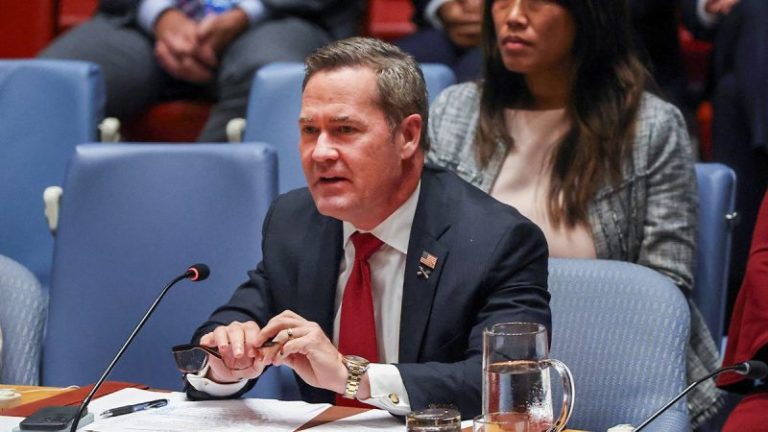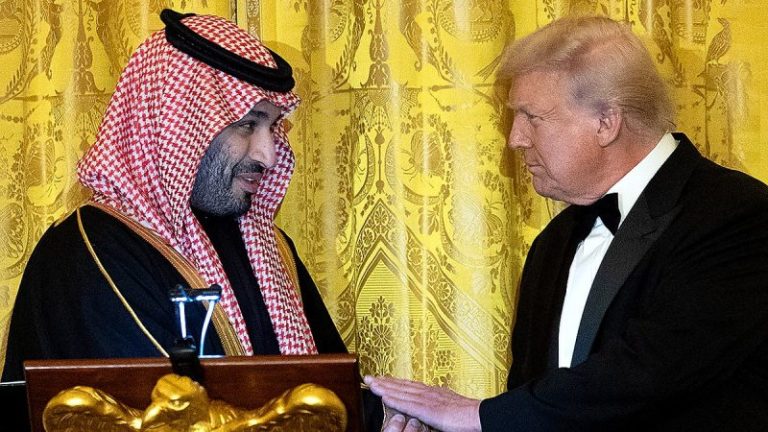The House of Representatives unanimously voted against a provision that allows Republican senators whose phone records were seized by former Special Counsel Jack Smith to sue the federal government.
The provision was included in the recently passed bill to end the 43-day government shutdown, which President Donald Trump signed into law last week.
Despite supporters saying the provision is necessary to give senators recourse when the executive branch oversteps its constitutional bounds and reaches into congressional communications, the last-minute inclusion of the measure outraged both Republicans and Democrats, underscoring the ever-present tensions between the House and Senate.
The repeal passed 426 to 0, with 210 Democrats and 216 Republicans in the tally.
Dubbed ‘Requiring Senate Notification for Senate Data,’ the provision would allow senators directly targeted in former special counsel Jack Smith’s Arctic Frost investigation to sue the U.S. government for up to $500,000.
House Appropriations Committee Chairman Tom Cole, R-Okla., who was involved in crafting part of the successful funding deal, told Fox News Digital he had even been afraid it could derail the final vote to end the shutdown.
‘It had been added in the Senate without our knowledge,’ Cole said. ‘It was a real trust factor … I mean, all of a sudden, this pops up in the bill, and we’re confronted with either: leave this in here, or we pull it out, we have to go to conference, and the government doesn’t get reopened.’
It was placed into the bill by Senate Majority Leader John Thune, R-S.D., and given the green light by Senate Minority Leader Chuck Schumer, D-N.Y., sources confirmed to Fox News Digital last week.
Thune put the provision into the bill at the request of members of the Senate GOP, a source familiar with the negotiations told Fox News Digital, which included Sens. Lindsey Graham, R-S.C., and Sen. Ted Cruz, R-Texas.
It was a big point of contention when the House Rules Committee met to prepare the legislation for a final vote last Tuesday night. Reps. Chip Roy, R-Texas, Austin Scott, R-Ga., and Morgan Griffith, R-Va., all shared House Democrats’ frustration with the measure, but they made clear it would not stand in the way of ending what had become the longest shutdown in history.
Even Speaker Mike Johnson, R-La., appeared blindsided by the move.
‘I had no prior notice of it at all,’ Johnson told reporters last week. ‘I was frustrated, as my colleagues are over here, and I thought it was untimely and inappropriate. So we’ll be requesting, strongly urging, our Senate colleagues to repeal that.’
Those Republicans agreed with the motivations behind their Senate counterparts wanting to sue but bristled over the notion that it would come at the expense of U.S. taxpayers.
Rep. John Rose, R-Tenn., told Fox News Digital the senators ‘have been wronged, no doubt in my mind’ but added its scope was too narrow.
‘This provision does not allow other Americans to pursue a remedy. It does not even allow the President of the United States, who was equally wrongfully surveilled and pursued by the Justice Department — they didn’t even include President Trump in this,’ Rose said.
And while several senators who would be eligible for the taxpayer-funded lawsuits have distanced themselves from the issue amid uproar, others have stuck to their guns.
‘My phone records were seized. I’m not going to put up with this crap. I’m going to sue,’ Graham said on ‘Hannity’ Tuesday night. He said he would be seeking ‘tens of millions of dollars.’
Cruz also told Fox News Digital that he did not support repealing the provision.
And Sen. Pete Ricketts, R-Neb., defended the provision in comments to Politico.
‘I’d like for us to be able to defend our branch when DOJ gets out of control,’ he said.
Senate Majority Leader John Thune, R-S.D., similarly suggested to reporters on Wednesday that he was in favor of the measure.
‘I would just say, I mean, you have an independent, co-equal branch of government whose members were, through illegal means, having their phone records acquired — spied on, if you will, through a weaponized Biden Justice Department,’ Thune said. ‘That, to me, demands some accountability.’
He added, ‘I think that in the end, this is something that all members of Congress, both House and Senate, are probably going to want as a protection, and we were thinking about the institution of the Senate and individual senators going into the future.’










